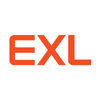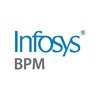Accounts Payable Executive
100+ Accounts Payable Executive Interview Questions and Answers

Asked in Genpact

Q. 1. What is Financial Accounting? 2. What is Cost Accounting? 3. What is Management Accounting? 4. What is the Acid Test Ratio? 5. What is the Debt-Equity Ratio? 6. What is the Golden Rules of Accounting?
Answers to common accounting questions including financial, cost, and management accounting, as well as ratios and golden rules.
Financial accounting is the process of recording, summarizing, and reporting financial transactions of a business.
Cost accounting involves analyzing the costs of producing a product or service to help with decision-making and cost control.
Management accounting provides financial information to help with planning, controlling, and decision-making with...read more

Asked in Genpact

Q. What is 2 way match What is 3 way match What is p2p cycle What is purchase requisition What is invoice What is purchase order
Answers to common accounts payable terms
2 way match: matching the invoice to the purchase order
3 way match: matching the invoice to the purchase order and receipt of goods
P2P cycle: Procure to Pay cycle, the process of purchasing goods or services
Purchase requisition: a document used to request goods or services
Invoice: a bill for goods or services received
Purchase order: a document used to order goods or services
Accounts Payable Executive Interview Questions and Answers for Freshers

Asked in Genpact

Q. What is a JE tracker, and what kind of information is recorded in it?
JE tracker is a tool used in accounting to record journal entries and their details.
JE tracker stands for Journal Entry tracker.
It is used to record journal entries and their details such as date, account name, debit/credit amount, and description.
It helps in tracking and managing journal entries for accurate financial reporting.
Examples of information recorded in JE tracker include adjusting entries, accruals, and deferrals.

Asked in Genpact

Q. What’s sales reruns What is purchesh reruns Who is a credited What is debit or
Sales returns are products that customers return to the company for various reasons.
Sales returns refer to the products that customers return to the company.
These returns can occur due to various reasons such as product defects, customer dissatisfaction, or incorrect shipments.
Sales returns are recorded as a reduction in revenue and accounts receivable.
They are typically accompanied by a credit memo or refund to the customer.
Examples of sales returns include returning a fault...read more

Asked in Infosys

Q. What is your current CTC My current CTC is 3.10 lakh per annum My are you looking for job For personal and professional development I'm looking for a job change
I am currently earning a CTC of 3.10 lakh per annum.
My current CTC is 3.10 lakh per annum.
I am earning 3.10 lakh per annum in my current role.
My current salary package is 3.10 lakh per annum.

Asked in Genpact

Q. what is je tracker and what kind of information you are recorded in je tracker
JE tracker is a tool used to record journal entries and related information in accounting.
JE tracker stands for Journal Entry tracker.
It is used to record journal entries in accounting.
It helps in tracking the source, date, and amount of each journal entry.
It also records the accounts affected by the journal entry.
JE tracker is an important tool for maintaining accurate financial records.
Accounts Payable Executive Jobs




Asked in Genpact

Q. What is AP , P2P Cycle, Golder rules of accounting,
AP is Accounts Payable, P2P Cycle is Procure to Pay Cycle, Golden Rules of Accounting are basic principles of accounting.
AP is the process of managing and paying invoices from vendors or suppliers.
P2P Cycle is the process of procuring goods or services and paying for them.
Golden Rules of Accounting are basic principles of accounting that govern the preparation of financial statements.
The three golden rules of accounting are: Debit what comes in, Credit what goes out; Debit th...read more

Asked in Genpact

Q. What is the account?
The account payable is a liability account that tracks the amounts owed by a company to its vendors or suppliers.
Accounts payable represents the company's short-term obligations to pay for goods or services received.
It is recorded as a current liability on the balance sheet.
Examples of accounts payable include invoices from suppliers, utility bills, and employee expense reimbursements.
The account payable balance increases when new invoices are received and decreases when paym...read more
Share interview questions and help millions of jobseekers 🌟


Asked in KHD Humboldt Wedag

Q. If an item is purchased with GST, what is the journal entry?
The entry for purchasing with GST involves debiting the expense account and crediting the GST payable account.
Debit the expense account for the cost of the purchase
Credit the GST payable account for the amount of GST paid
Example: Debit Purchases account for $100 and credit GST payable account for $10 if the purchase cost $100 and the GST rate is 10%

Asked in Genpact

Q. What is tax What is GRN What process What is credit sales What’s debit sale s
A set of questions related to accounting and finance.
Tax is a mandatory financial charge imposed by the government on income, goods, and services.
GRN stands for Goods Receipt Note, which is a document that confirms the receipt of goods from a supplier.
The process refers to the steps involved in completing a task or achieving a goal.
Credit sales are transactions where the customer buys goods or services on credit and pays later.
Debit sales are transactions where the payment is...read more

Asked in TCS

Q. If I am paying you in cash for raw materials, would you be a creditor or a debtor?
Creditor, as the company is receiving cash for the raw material
The company receiving the cash for the raw material is the Creditor
The party paying for the raw material in cash is the Debtor
Example: If a supplier pays cash for raw material, they are the Creditor and the company receiving the cash is the Debtor

Asked in Genpact

Q. What do you understand by P2P?
P2P stands for Procure-to-Pay, a process that involves purchasing goods or services and paying for them.
P2P involves the entire procurement process from identifying the need for goods or services to paying for them
It includes activities such as requisitioning, purchasing, receiving, and invoicing
P2P aims to streamline the procurement process, reduce costs, and improve efficiency
Examples of P2P software include SAP Ariba, Coupa, and Oracle Procurement Cloud

Asked in Genpact

Q. What is a debit net?
Debit net refers to the total amount of debits in a financial transaction.
Debit net is the sum of all debits in a financial transaction.
It is used to calculate the total amount owed by a company or individual.
For example, if a company has $100 in debits and $50 in credits, the debit net would be $50.
Debit net is important in accounting and financial management.

Asked in Genpact

Q. What is accounts payable?
Accounts payable is the amount of money a company owes to its vendors or suppliers for goods or services received.
Accounts payable is a liability account that tracks the money owed to vendors or suppliers.
It includes invoices, bills, and other expenses that have not yet been paid.
AP is an important part of a company's cash flow management.
Examples include rent, utilities, inventory, and office supplies.
AP can be managed through software systems like SAP, Oracle, or QuickBooks...read more

Asked in Jio

Q. What software do you work in?and thats how invoice processing?
I work in various accounting software for invoice processing.
I have experience working with popular accounting software such as QuickBooks, SAP, and Oracle.
I am proficient in using spreadsheets like Microsoft Excel for invoice processing.
I am familiar with automated invoice processing systems like Ariba and Coupa.
I have also used specialized invoice processing software like Concur and Bill.com.
I am adaptable and quick to learn new software as per the organization's requiremen...read more

Asked in EXL Service

Q. What is debit note and credit note
Debit note and credit note are accounting documents used to record adjustments in financial transactions.
Debit note is issued by a buyer to a seller to request a credit for overcharged or returned goods/services.
Credit note is issued by a seller to a buyer to provide a credit for undercharged or faulty goods/services.
Debit note increases the buyer's accounts payable and decreases the seller's accounts receivable.
Credit note decreases the buyer's accounts payable and increases...read more

Asked in HCLTech

Q. What is the objective of reconciliation and why is it important?
Reconciliation is the process of comparing financial records to ensure accuracy and consistency.
Objective is to identify discrepancies between records
Ensures accuracy of financial data
Helps in detecting errors or fraud
Aids in maintaining financial integrity
Important for financial reporting and decision-making
Example: Reconciling bank statements with company records

Asked in HCLTech

Q. How do you process invoices, and what types of queries do you address through email?
I process invoices by verifying accuracy, coding, obtaining approvals, and entering into the system. I address queries related to payment status, discrepancies, and vendor information through email.
Verify accuracy of invoices
Code invoices based on expense categories
Obtain necessary approvals before processing
Enter invoices into the accounting system
Address queries related to payment status
Resolve discrepancies in invoices
Update vendor information as needed

Asked in HCLTech

Q. What actions do you take when invoicing in a different currency?
When invoicing in a different currency, I take actions such as converting the amount to the company's base currency, checking for exchange rate fluctuations, and ensuring accuracy in the conversion process.
Convert the amount on the invoice to the company's base currency using the current exchange rate
Check for exchange rate fluctuations to ensure accuracy in the conversion process
Communicate with vendors or suppliers to clarify any discrepancies in the invoiced amount

Asked in Cipla Health

Q. What is the payment entry with the impact of TDS & GST?
Payment entry with TDS & GST impact includes deduction of TDS and addition of GST in the payment amount.
TDS is deducted from the payment amount as per the applicable rate
GST is added to the payment amount as per the applicable rate
The net payment amount after deducting TDS and adding GST is recorded in the payment entry
The TDS and GST amounts are separately recorded in the books of accounts

Asked in TCS

Q. How do you book an invoice and purchase order?
To book an invoice and purchase order, you need to match the details on the invoice with the corresponding purchase order and enter them into the accounting system.
Verify that the details on the invoice match the corresponding purchase order.
Enter the invoice details into the accounting system, including the invoice number, date, amount, and payment terms.
Match the invoice to the purchase order in the accounting system to ensure accuracy.
Record the invoice as a liability in t...read more

Asked in Livpure

Q. What is the role of GST and TDS compliance in an Accounts Payable (AP) position?
GST and TDS compliance are essential in an AP position to ensure accurate tax reporting and adherence to government regulations.
Ensuring accurate calculation and timely payment of GST on vendor invoices
Deducting TDS as per government regulations on payments made to vendors
Maintaining proper documentation and records for GST and TDS compliance audits
Reconciling GST and TDS amounts with financial statements for reporting purposes

Asked in Infosys BPM

Q. What is Debit Note, Credit Note, 2 way and 3 way match
Debit Note and Credit Note are used in accounting to adjust invoices. 2 way and 3 way match are methods of verifying invoices.
Debit Note is issued by the buyer to the seller when goods are returned or when there is an overcharge in the invoice.
Credit Note is issued by the seller to the buyer when there is a reduction in the invoice amount due to returns or overcharges.
2 way match is a comparison of the invoice to the purchase order to ensure the correct goods were received at...read more

Asked in Genpact

Q. Types of purchase orders,
Purchase orders can be categorized into standard, blanket, planned, and contract types.
Standard purchase orders are used for one-time purchases.
Blanket purchase orders are used for recurring purchases over a period of time.
Planned purchase orders are used for future purchases based on a forecast.
Contract purchase orders are used for purchases based on a long-term agreement.
Examples: Standard - office supplies, Blanket - maintenance services, Planned - raw materials, Contract ...read more

Asked in HCLTech

Q. What are SLA and KPI? Explain five differences between them.
SLA stands for Service Level Agreement and KPI stands for Key Performance Indicator. They are both important metrics in measuring performance.
SLA is a contract between a service provider and a customer, outlining the level of service expected. KPI is a measurable value that demonstrates how effectively a company is achieving key business objectives.
SLA focuses on the agreed upon level of service, while KPI focuses on performance indicators.
SLA is usually a part of a contract,...read more

Asked in KHD Humboldt Wedag

Q. 1. Tell me an accounting entry for anything purchase?
An accounting entry for a purchase is a debit to the Purchases account and a credit to the Accounts Payable account.
Debit the Purchases account to record the cost of the purchase
Credit the Accounts Payable account to show the amount owed to the supplier
This entry increases the Purchases account and the Accounts Payable account
Example: Debit Purchases $1,000 and credit Accounts Payable $1,000

Asked in Genpact

Q. What is the 3 way machine
The 3 way machine is a tool used in accounts payable to match purchase orders, invoices, and receiving reports.
The machine compares the three documents to ensure accuracy and prevent fraud.
It helps to identify discrepancies and resolve them before payment is made.
For example, if the invoice amount is higher than the purchase order amount, the machine will flag the discrepancy for review.
The 3 way machine is an important tool in maintaining the integrity of the accounts payabl...read more

Asked in KHD Humboldt Wedag

Q. What is the journal entry to adjust the amount of vendors?
The entry for adjusting the amount of vendors is to debit or credit the accounts payable and the corresponding expense or income account.
To increase the amount owed to a vendor, debit the accounts payable account and credit the expense account.
To decrease the amount owed to a vendor, credit the accounts payable account and debit the expense account.
Adjustments can also be made to correct errors or reconcile discrepancies in vendor invoices or payments.
For example, if a vendor...read more

Asked in Genpact

Q. What is your understanding of P2P (Procure-to-Pay)?
P2P stands for Procure-to-Pay, which is the process of purchasing goods or services and paying for them.
P2P involves the entire process from requisition to payment
It includes activities such as vendor selection, purchase order creation, invoice processing, and payment
P2P aims to streamline the purchasing process and ensure timely and accurate payments
Examples of P2P software include SAP Ariba, Coupa, and Basware

Asked in John Deere

Q. What is GST ? How is GST across states ?
GST stands for Goods and Services Tax. It is a single tax system that replaced multiple indirect taxes in India.
GST is a destination-based tax system
It is levied on the value of goods and services at each stage of the supply chain
GST rates vary across different goods and services
It is applicable across all states in India
GST has simplified the tax structure and reduced tax evasion
Interview Questions of Similar Designations
Interview Experiences of Popular Companies









Reviews
Interviews
Salaries
Users


















